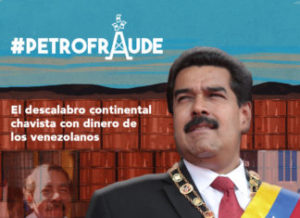 The power outage that left most of Venezuela without electricity for five days in early March seemed eerily symbolic of the mood among many people there. Living through one of the most severe humanitarian crises in Latin American history, Venezuelans see no end in sight to the political and economic turmoil. The World Bank forecasts GDP to contract by 25% this year amid continued hyperinflation and food scarcity. Prospects of a negotiated solution between the government and the opposition are equally dim, says IISS, the UK-based think-tank.
The power outage that left most of Venezuela without electricity for five days in early March seemed eerily symbolic of the mood among many people there. Living through one of the most severe humanitarian crises in Latin American history, Venezuelans see no end in sight to the political and economic turmoil. The World Bank forecasts GDP to contract by 25% this year amid continued hyperinflation and food scarcity. Prospects of a negotiated solution between the government and the opposition are equally dim, says IISS, the UK-based think-tank.
The crisis in Venezuela is causing divisions between the Trump administration and EU governments, which have failed to back Washington’s call for tougher sanctions against President Nicolas Maduro, VOA reports:
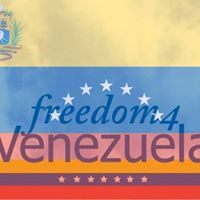 Disregarding evidence presented at a NATO summit last week indicating that Maduro is digging in with the aid of Russia, the EU decided against widening Venezuelan sanctions during a foreign ministers’ meeting Monday. “The EU is against implementing sanctions on Venezuela as a country,” said Spanish Foreign Minister Josep Borrel at a press briefing following the meeting. He left open the possibility of applying individual sanctions against some members of Maduro’s government.
Disregarding evidence presented at a NATO summit last week indicating that Maduro is digging in with the aid of Russia, the EU decided against widening Venezuelan sanctions during a foreign ministers’ meeting Monday. “The EU is against implementing sanctions on Venezuela as a country,” said Spanish Foreign Minister Josep Borrel at a press briefing following the meeting. He left open the possibility of applying individual sanctions against some members of Maduro’s government.
In a press release Monday, the State Department said Special Representative for Venezuela Elliott Abrams will meet with Portuguese and Spanish officials in Lisbon and Madrid this week “to discuss the deteriorating situation in Venezuela.” The statement said “the United States, Portugal, and Spain support a Venezuelan-led transition toward free and fair elections.”
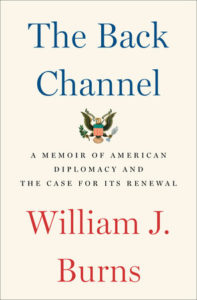 President Barack Obama’s deputy secretary of state, William J. Burns, has published a new book on American diplomacy, “The Back Channel,” rife with warnings that could apply to Venezuela. He praised the administration for avoiding military entanglements that are bound to raise cries of American imperialism, even among Mr. Maduro’s greatest opponents. But he said it was at risk of repeating some of the Obama administration’s mistakes, The New York Times reports:
President Barack Obama’s deputy secretary of state, William J. Burns, has published a new book on American diplomacy, “The Back Channel,” rife with warnings that could apply to Venezuela. He praised the administration for avoiding military entanglements that are bound to raise cries of American imperialism, even among Mr. Maduro’s greatest opponents. But he said it was at risk of repeating some of the Obama administration’s mistakes, The New York Times reports:
“The focus on building political and economic pressure is sensible,” he said. And he noted that the geographic distance between Russia and Venezuela limited Mr. Putin’s ability to affect events. “Proximity matters,” he said. “They don’t have a way to project their power in ways they demonstrably did in Syria.”
As a result, much hinges on Mr. Trump’s ability to build a hemispheric coalition, a move that is being undermined, Mr. Burns argued, by the tension with Mexico, especially with Mr. Trump’s recent threats to close the border and to end assistance to El Salvador, Guatemala and Honduras.
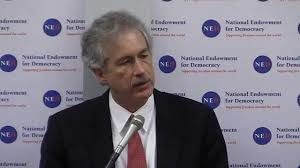 Mr. Maduro, too, may be learning some lessons from Mr. Assad, said Burns, (left), a National Endowment for Democracy board member: “As long as you control the guys with the guns, even the most unpopular and deeply repressive regimes have the capacity to hang on a lot longer than we might assume.”
Mr. Maduro, too, may be learning some lessons from Mr. Assad, said Burns, (left), a National Endowment for Democracy board member: “As long as you control the guys with the guns, even the most unpopular and deeply repressive regimes have the capacity to hang on a lot longer than we might assume.”
Members of the United Nations Security Council should urge UN Secretary-General Antonio Guterres to formally declare the situation in Venezuela a complex humanitarian emergency that poses a serious risk to the region, Human Rights Watch and researchers from Johns Hopkins Bloomberg School of Public Health said today.
Secretary of State Mike Pompeo heads this week to Latin America to press the Trump administration’s call for a political transition in Venezuela, underscoring the mission by visiting a city on the troubled country’s border, the Wall Street Journal reports (HT:FDD).
El Salvador’s incoming president Nayib Bukele said on Tuesday he would not be inviting the leaders of Honduras, Nicaragua and Venezuela to his June 1 inauguration after criticizing them as illegitimate rulers, Reuters adds.
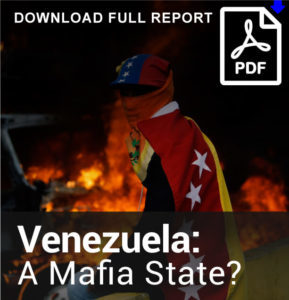 A Mafia State?
A Mafia State?
Venezuela’s kleptocracy has become a hub of organized crime in the region, according to one analysis. The report – Venezuela: A Mafia State? by InSight Crime – cites “staggering incompetence, corruption and kleptocracy,” adding that “state coffers have been pillaged on an industrial scale by the Bolivarian elite.”
“As the country teeters on the brink of bankruptcy, kleptocracy and the systematic
sacking of state coffers has diminished. There is simply no more money to steal
from the government budget,” it notes. “However, the wheels of corruption need to be greased, especially within the military, which is the key strut propping up the government of Maduro and which will be the kingmaker during any regime change.”







